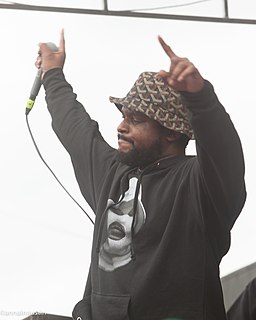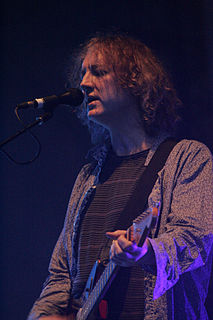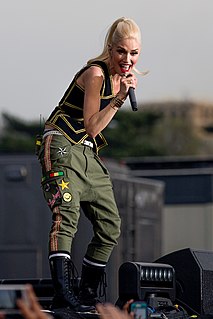A Quote by Justin Vernon
I knew I could never give up on music. Completely devoid of any religious or iconic context, I felt like music was handed down to me - this is what I was going to do.
Related Quotes
Nas always been my favorite rapper, but 50 Cent, he changed my way of thinking about music 'cause he was so detailed in his music, I knew that wasn't lying. I never felt Tupac that way; I never felt Biggie that way. I love Nas music, but I never felt and believed like, 'This is for real.' 'Cause I grew up that gangsta lifestyle.
Music to me was never something that I could listen to while reading a book. Especially when I was studying music, if I was going to listen to music, I was going to put on the headphones or crank the stereo, and by God, I was going to sit there and just listen to music. I wasn't going to talk on the phone and multitask, which I can't do anyway.
I was an actor when I was a teenager and it could have been the direction that I headed in. But music and my relationship with music is quite deep, and it really is the nucleus of my creativity. So I gave up acting so I could pursue music fully, and I never thought about really going back. And then [director] Lee Daniels met me and wanted to work with me, and that's how it started.
A lot of people ask me, 'How did you have the courage to walk up to record labels when you were 12 or 13 and jump right into the music industry?' It's because I knew I could never feel the kind of rejection that I felt in middle school. Because in the music industry, if they're gonna say no to you, at least they're gonna be polite about it.
You know that in order to copyright material somebody has to write it down for you. Any piece of recorded material has to be scored in order for it to be copyrighted. I've seen the scores of my things and they don't resemble the music in any way. If you give them to somebody who has never heard the music and say, "What does this sound like to you?" they'll play you something that has no relationship with the music it derives from. Notation simply isn't adequate.
Because I was a chemistry student and was never supposed to be a musician, I always felt like I was an outsider looking at music going "Why is this interesting to me? Why should I be doing this?" and I never felt like I was a natural musician. It came into my life, kind of, as a conceptual problem and I think all my pieces are, in a way, looking at some issue and sometimes veering toward an inside baseball model of classical music.
I've become kind of a haven for people who like pop music, but that's not the only thing they like. They also like music in general and want to be able to expand their own horizons. They haven't completely given up on music and are willing to have somebody mediate new things that are happening in music to them.


































